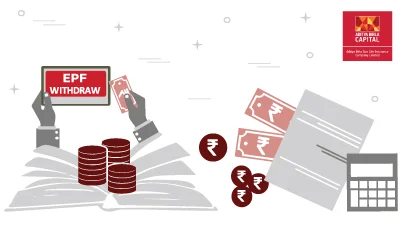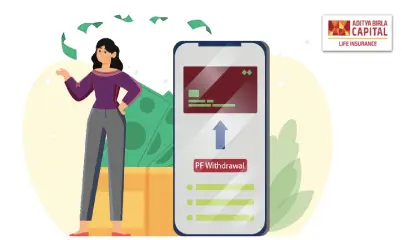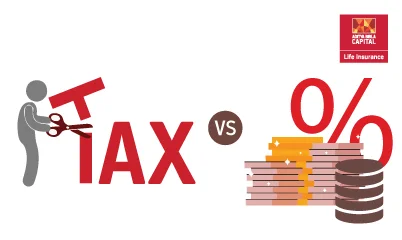How to Calculate Capital Gain Tax on the Sale of a House
Read Aloud


Get Guaranteed Returns After a Month^
Unlock the Power of Smart Investment!


Get Guaranteed Returns After a Month^
Unlock the Power of Smart Investment!


-
 Table of Contents
Table of Contents- An Overview of Capital Gains Tax in India
- What Kinds of Capital Assets Are There?
- How to Calculate Property Capital Gains Tax?
- Calculation of Capital Gains
- The Terms You Must Understand
- How to calculate a property's capital gains
- The Requirements for Inherited Securities
- Any Tax Deductions to Lower Capital Gains?
- What does Bond Capital Gains Tax mean?
- What Are Tax Savings Options Available for Capital Gains?
- What should you watch out for when computing capital gains tax?
- Conclusion
- FAQs
An Overview of Capital Gains Tax in India
What Kinds of Capital Assets Are There?
How to Calculate Property Capital Gains Tax?
Calculation of Capital Gains
The Terms You Must Understand
How to calculate a property's capital gains
The Requirements for Inherited Securities
Any Tax Deductions to Lower Capital Gains?
What does Bond Capital Gains Tax mean?
What Are Tax Savings Options Available for Capital Gains?
What should you watch out for when computing capital gains tax?
Conclusion
Frequently Asked Questions
• If you are buying a new home and selling your old one, take advantage of the available exemption.
• Invest in Capital Gains Bonds
• Capital Gains Accounts Investment Program
• Long-term investing
• Incorporate capital losses into profits
• It will be considered a short-term capital gain if you sell the property within two years of purchasing it. Your income for that year will include this. You will be subject to tax based on your tax bracket.
• It will be considered a long-term capital gain if you sell the property two years after purchasing it. Taxes on long-term capital gains are 20.6%.
About Author
ABSLI DigiShield Plan
Now Playing
from Income Tax

How to Calculate Capital Gain Tax on the Sale of a House
00:00
00:00
Now Playing
How to Calculate Capital Gain Tax on the Sale of a House
How to Calculate Capital Gain Tax on the Sale of a House
from Income Tax
-
Disclaimer
ABSLI DigiShield Plan. This is a non-linked non-participating individual pure risk premium life insurance plan; upon Policyholder’s selection of Plan Option 9 (Level Cover with Survival Benefit) and Plan Option 10 (Return of Premium [ROP]) this product shall be a non-linked non-participating individual life savings insurance plan. UIN: 109N108V11
^ ABSLI DigiShield Plan scenario: Female, non smoker, Age: 21 years, level Term Insurance, Premium paying Term: regular pay, policy term: 25 years, Pay frequency: Annual Premium of Rs. 6500/12 months (on average Rs. 542/month) Exclusive of GST (offline premium).
~ Our life insurance policies cover COVID -19 claims under life insurance claims, subject to applicable terms & conditions of policy contract and extant regulatory framework.
ADV/10/22-23/1893
Subscribe to our Newsletter
Get the latest product updates, company news, and special offers delivered right to your inbox
Thank you for Subscribing
Stay connected for tips on insurance and investments

 Home Loans
Home Loans
 Personal
Loans
Personal
Loans
 SME Loans
SME Loans
 Business Loans - Udyog
Plus
Business Loans - Udyog
Plus
 Loan against Securities
Loan against Securities
 Mutual Funds
Mutual Funds
 Stock and
Securities
Stock and
Securities
 Portfolio
Management Services
Portfolio
Management Services
 Pension Funds
Pension Funds
 Life
Insurance
Life
Insurance
 Health
Insurance
Health
Insurance
 Wellness
Solutions
Wellness
Solutions
 Pay Bills
Pay Bills
 Pay anyone
Pay anyone
 Pay on call
Pay on call
 Payment
Lounge
Payment
Lounge
 ABC Credit
Cards
ABC Credit
Cards

 1800-270-7000
1800-270-7000










